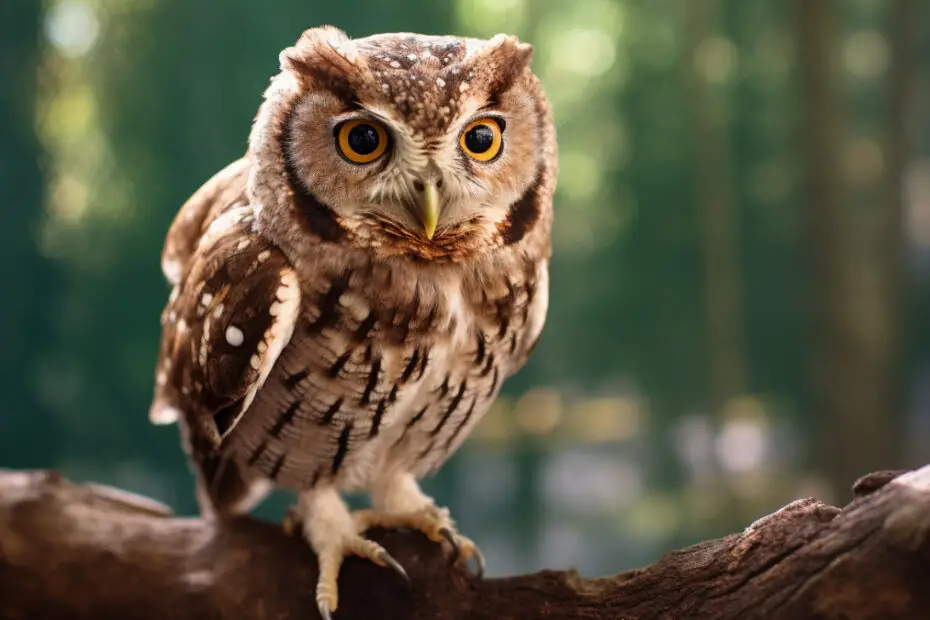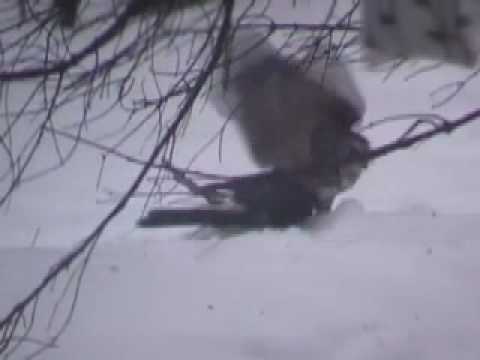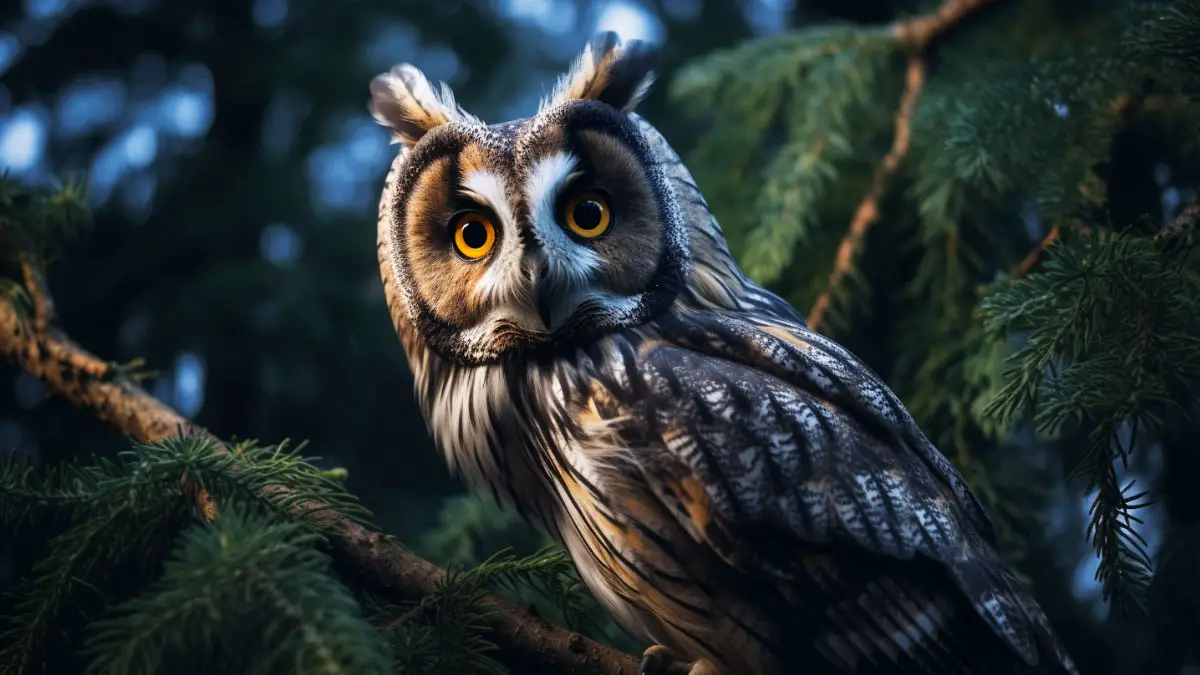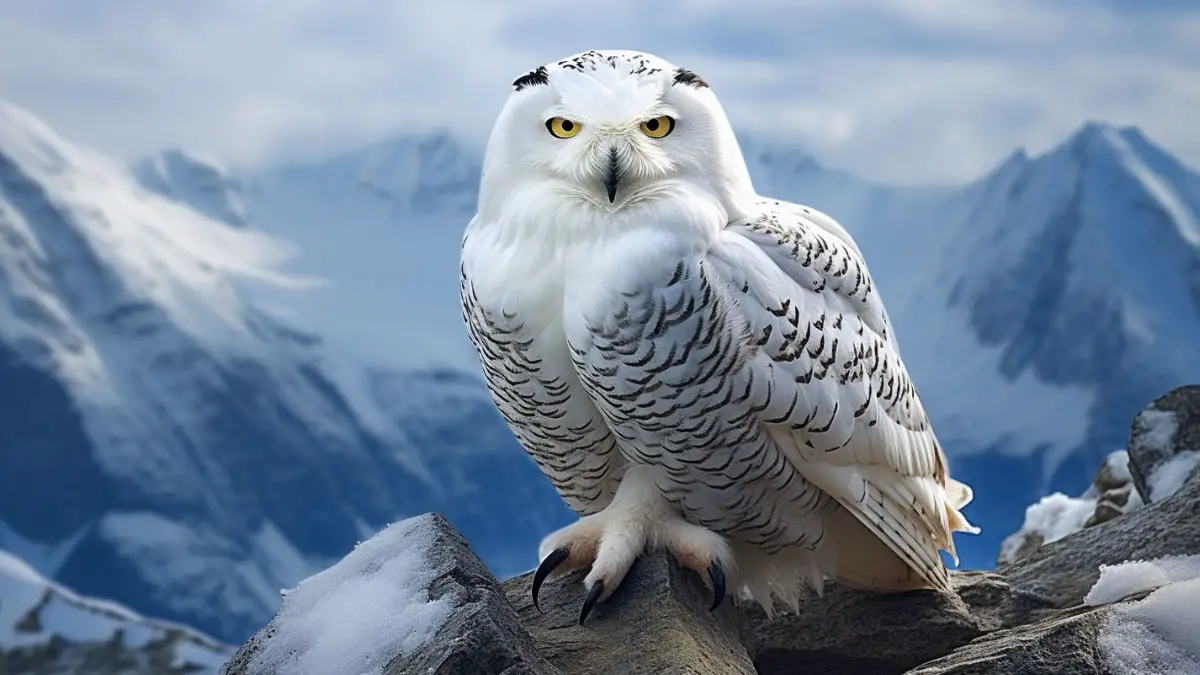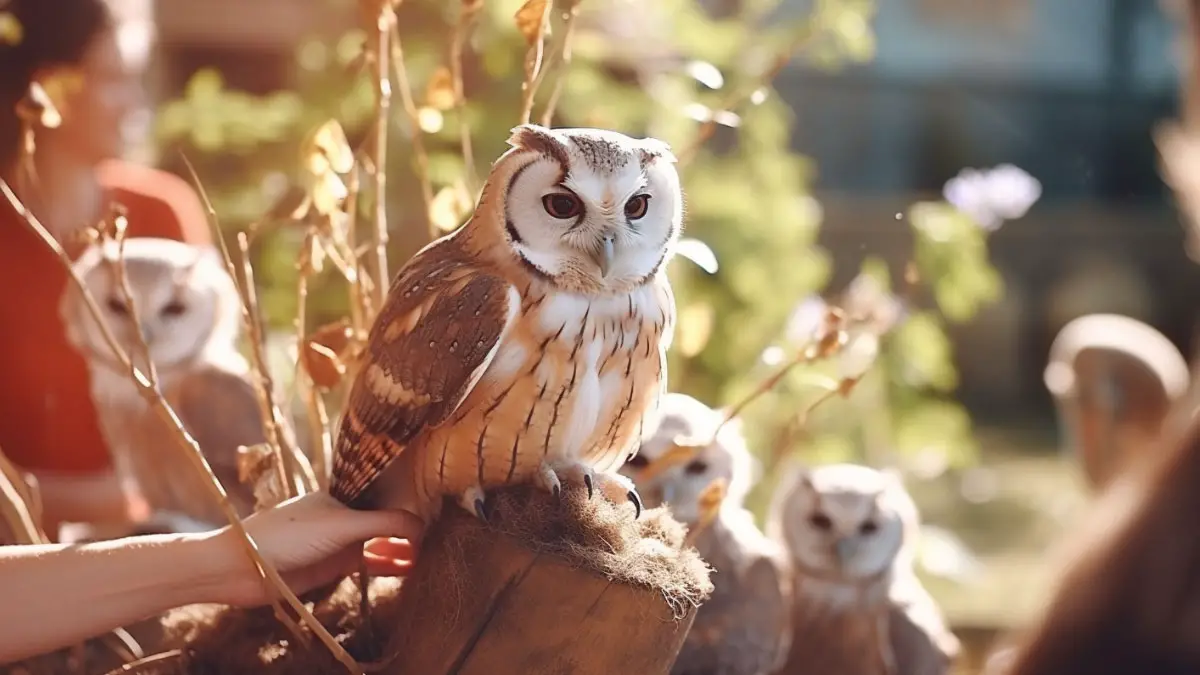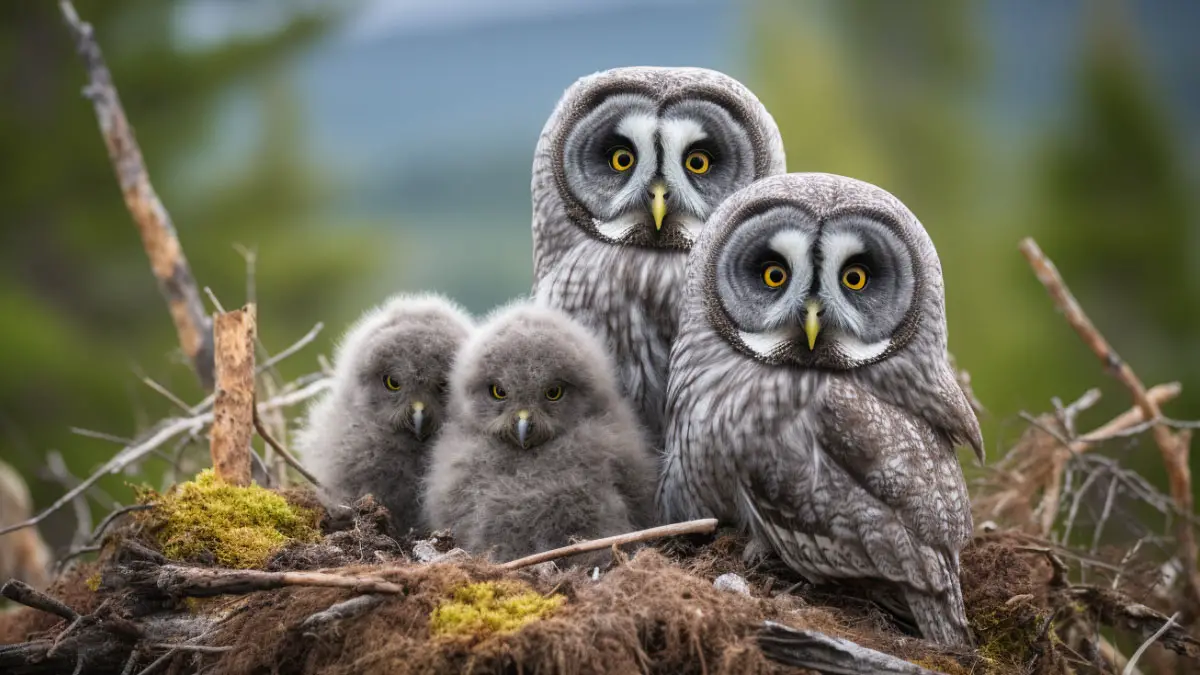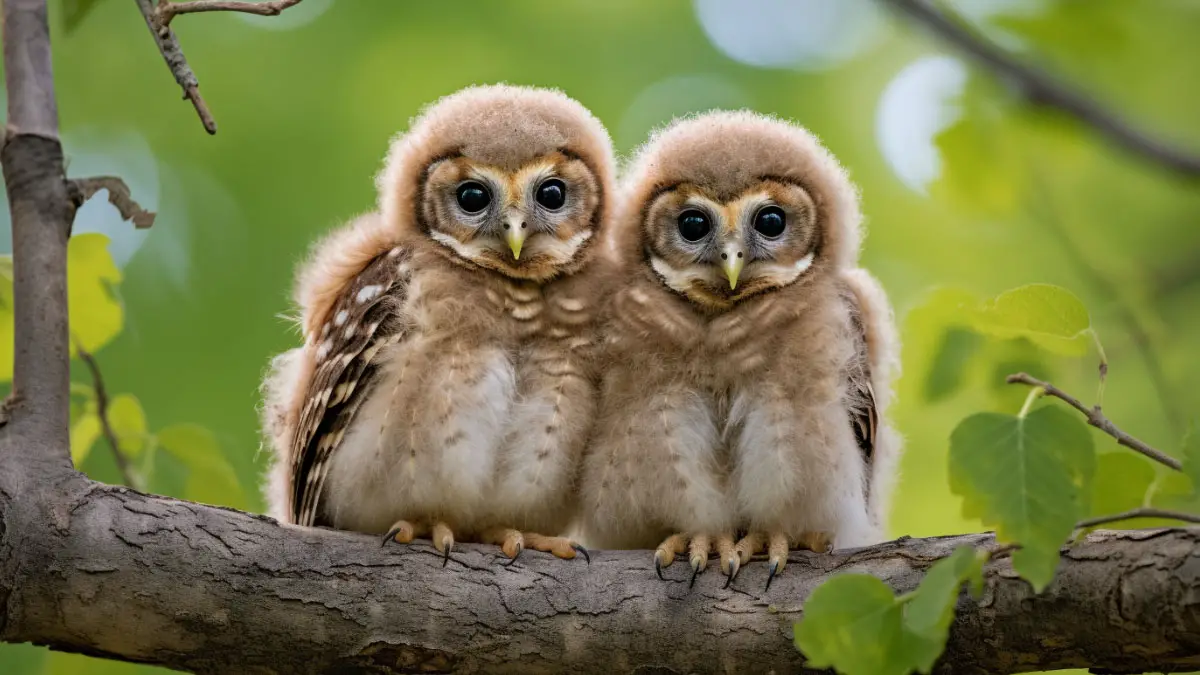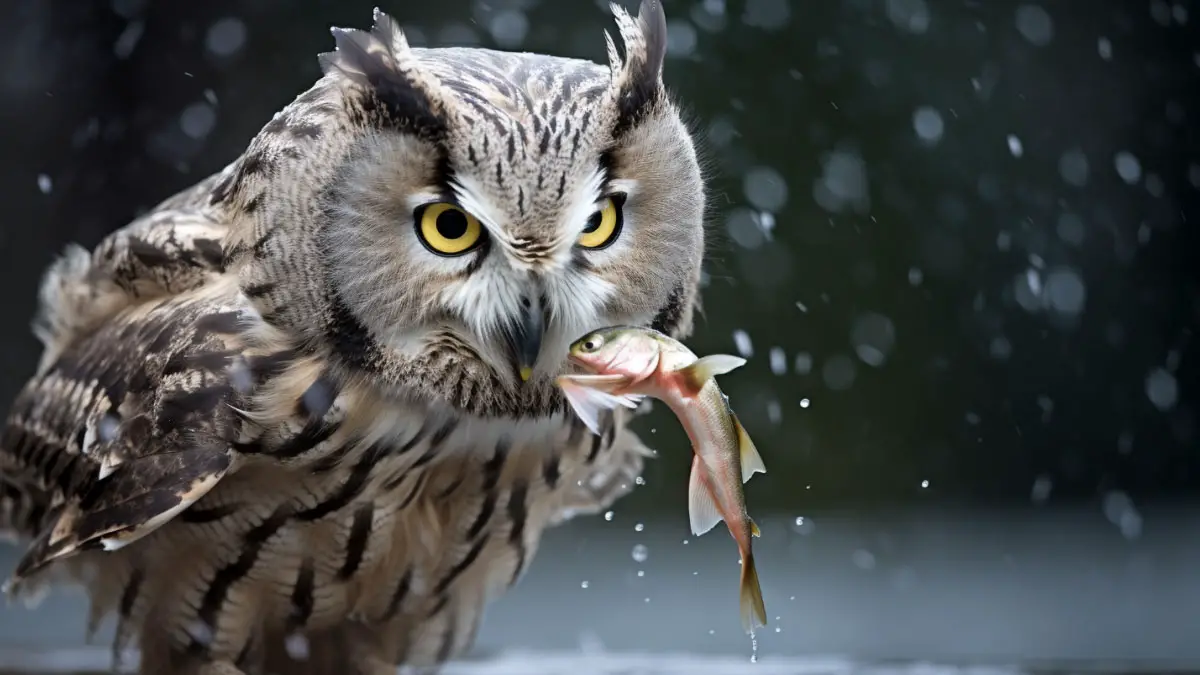If you’ve been near the woods frequently, screech owls are a familiar sight to you. You’ll notice that they never bother humans for their livelihood.
So, have you ever wondered what do screech owls eat? Well, screech owls will eat just about any animal they can catch and swallow whole. They are opportunistic predators with a diverse diet, including insects, small mammals, birds, amphibians, reptiles, and fish.
But how do they catch such types of prey? We’ve explained it all right here. By the end of this discussion, you’ll have a clear understanding of the screech owl’s varied diet and hunting habits. So, do read till the end!
What Do Screech Owls Eat? (Feeding Habits In Details)
Screech Owls’ prey range is impressively expensive, encompassing both invertebrates and vertebrates. They feed on whatever animals they can find and catch.
They swallow their prey whole or in large pieces and regurgitate the indigestible parts, such as bones, fur, and feathers, in the form of pellets.
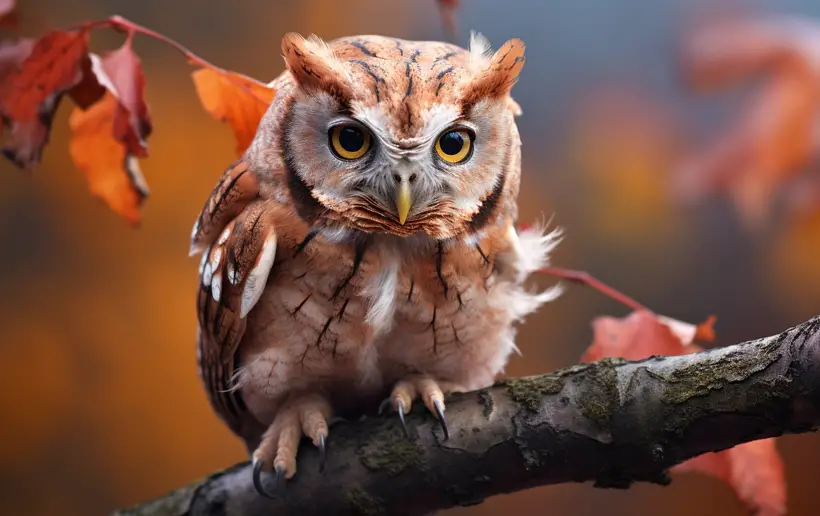
Here’s what they eat in detail:
A. Invertebrates:
According to a 2009 report published by Cambridge University Press, insects are a major food source for screech owls, especially during the summer when they are abundant and diverse. Screech owls eat various insects, such as moths, crickets, grasshoppers, beetles, caterpillars, spiders, scorpions, centipedes, and millipedes.
They catch insects by flying near street lamps or other light sources that attract them or by pouncing on them from a perch or the ground. Insects provide screech owls with a high amount of calcium and other minerals.
B. Vertebrates:
As seasons transition, vertebrates become the primary dietary focus for them. Such as:
1. Small mammals: This category includes mice, shrews, and sometimes even bats. The owl’s acute night vision facilitates the detection of these often elusive creatures.
Small mammals are an important part of this owl’s diet, especially rodents such as mice, voles, shrews, rats, and squirrels.
Screech owls hunt rodents by swooping down from a perch or flying low over the ground, using their keen hearing to detect the rustling sounds of their prey. They can also catch bats in mid-air by following their echolocation calls.
2. Birds: Although not their primary choice, smaller bird species might find themselves at risk, especially during twilight hours.
Screech owls eat various birds, such as sparrows, starlings, robins, jays, woodpeckers, doves, quails, pheasants, and chickens. They hunt birds by flying silently behind them or by ambushing them from a perch or a nest hole.
Here’s a video of a screech owl killing a hawk.
3. Amphibians: Amphibians are another food source for screech owls, especially during the spring when they are breeding and active.
Screech owls eat various amphibians, such as frogs, toads, salamanders, newts, and tadpoles. They hunt amphibians by flying over ponds or streams where they live or by snatching them from the water or the shore.
4. Reptiles: Reptiles are also part of this bird’s diet. Their cold-blooded nature means they’re less agile in cooler conditions, rendering them easier targets.
Screech owls eat various reptiles, such as lizards, snakes, baby turtles, and baby crocodiles. They hunt reptiles by stalking them on the ground or by grabbing them from their hiding places.
5. Fish: Screech owls also eat various fish, such as minnows, sunfish, catfish, trout, and carp. They hunt fish by diving into the water or skimming the surface with their feet or beak.
Feeding Habit: How Much Do Screech Owls Eat Per Day or Hunting Session?
The daily food intake taken by screech owls depends on several factors, such as their body size, metabolic rate, activity level, prey availability, season, and environmental conditions. The exact amount of food taken by screech owls has not been quantified through peer-reviewed research. However, informed estimates can be formed.
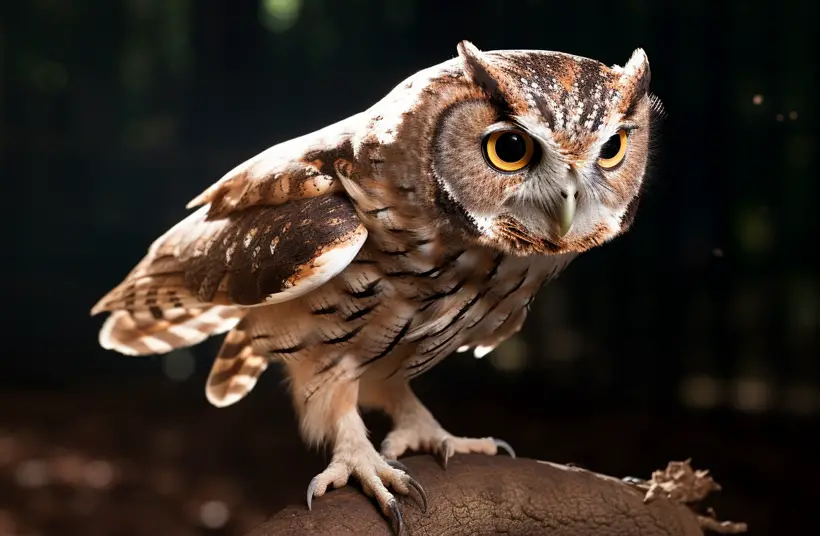
According to the calculation published in a study by Marti, the average daily food intake of 4 types of owls was about 20-75g per day. It was equivalent to about 10-20% of their body mass.
Therefore, it can be safely estimated that screech owls eat at least 20 to 75 grams of food per day.
What Do Baby Screech Owls Eat?
Baby Screech Owls are fed by their parents every two to four hours until they are old enough to hunt on their own. Their diet consists mainly of what their parents eat.
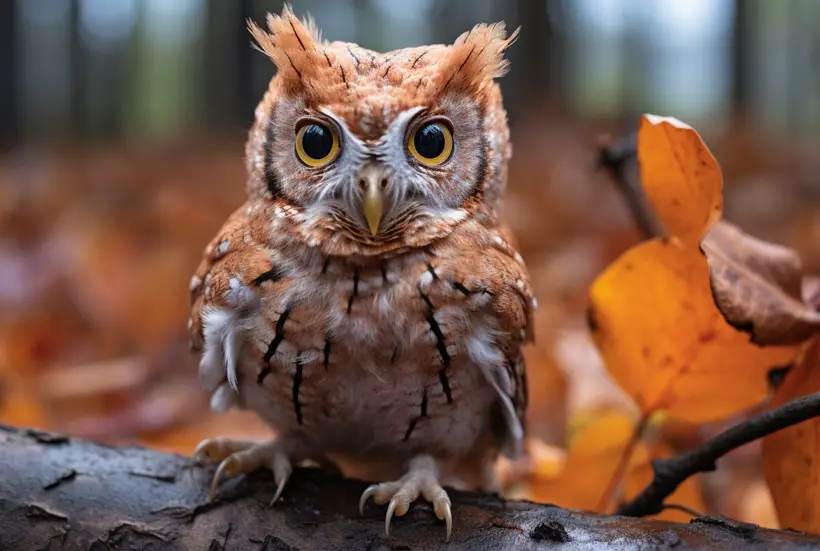
This includes:
- Rodents: Mice, voles, shrews, moles, pocket gophers, etc.
- Birds: Blue jays, chickadees, thrushes, creepers, etc.
- Insects: Moths, crickets, grasshoppers, beetles, and flies.
- Amphibians: Frogs, toads, salamanders, and tadpoles.
- Reptiles: Lizards, snakes, etc.
- Fish: Minnows, sunfish, catfish, and trout.
How Do Screech Owls Metabolize And Digest Their Food?
Screech owls have a specialized digestive system that allows them to swallow their prey whole through the following steps:
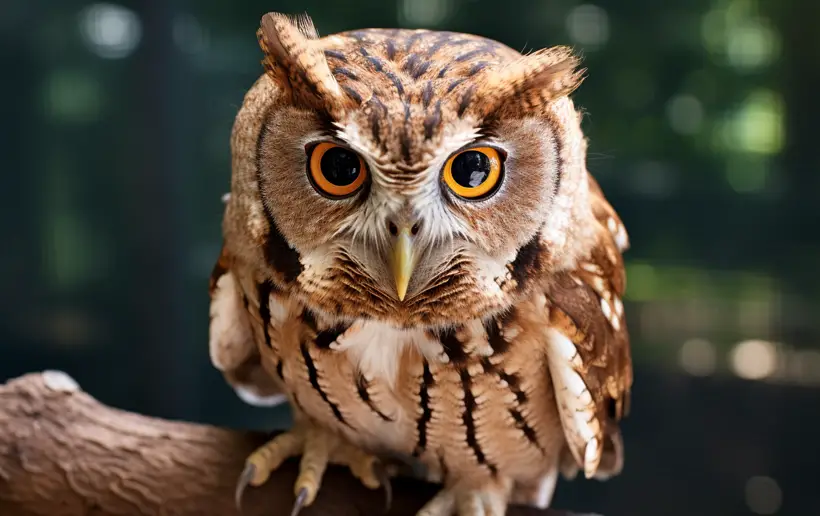
1. Ingestion of the prey
Screech owls do not have teeth or a crop. Therefore, they swallow their prey whole or tear it into large chunks with their beaks.
2. Breakdown of the food in the stomach
The soft parts, such as flesh, organs, and blood, are digested and absorbed into the bloodstream. On the other hand, the hard parts, such as bones, fur, feathers, scales, and shells, are compacted into a pellet that remains in the gizzard.
3. Elimination of the waste products
The other waste products of digestion in screech owls are excreted through the cloaca. It is a common opening for both the digestive and urinary systems.
How Do Screech Owls Hunt The Prey They Eat?
The versatility in the screech owl’s diet is due to its adaptive hunting techniques. This owl usually uses the following hunting techniques to catch and eat their prey.
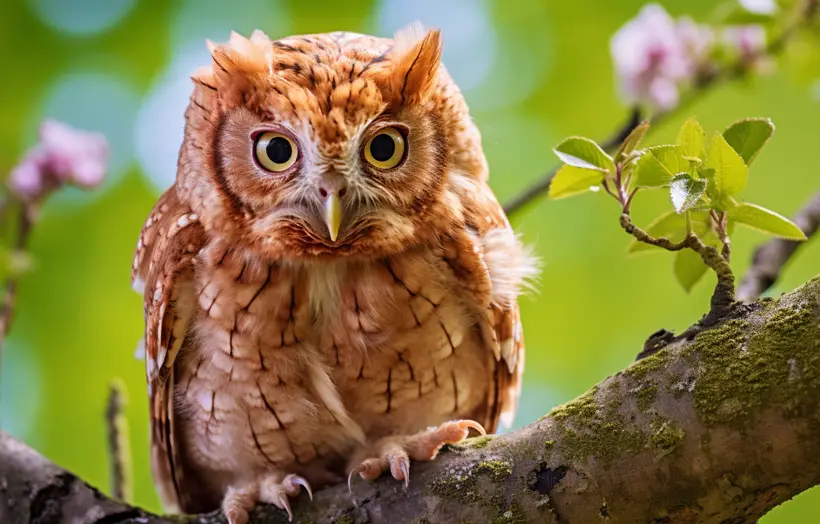
1. Perch Hunting:
Often, a screech owl would perch silently, scanning its surroundings intently. Upon spotting a potential meal, it swoops down, capturing the prey with its talons.
2. Gliding and Hovering:
For aerial targets like moths or even bats, the owl showcases an impressive ability to glide and hover. By doing this, it intercepts its prey in mid-air.
3. Ground Foraging:
On occasion, these owls are seen rummaging on the ground, especially when hunting for beetles or fallen insects.
What Animals Do Screech-Owls Hunt During Summer?
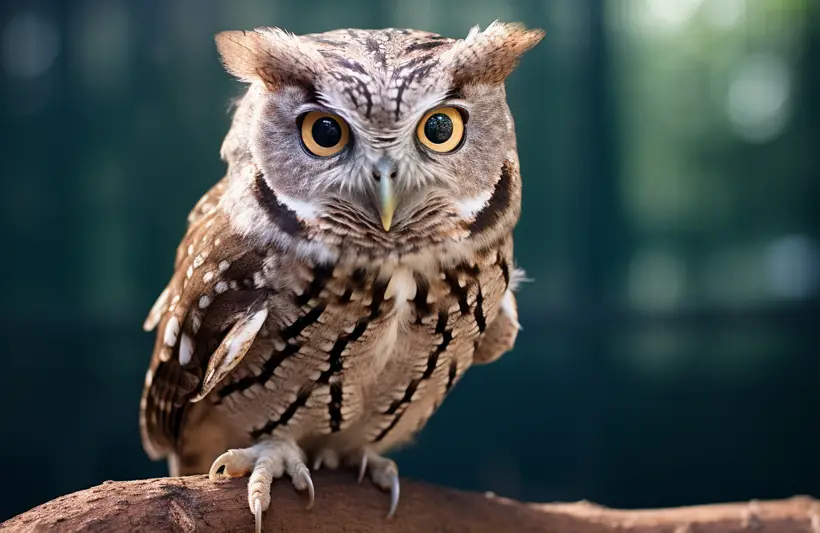
Screech Owls’ diet in summer is based on what is available in the warm months of the year. Here are some foods that screech owls may eat in summer:
- Insects: In the summer, screech owls hunt grasshoppers, beetles, etc.
- Mammals: According to a 2018 study, many screech owl species, including the Long-tufted screech owls, feed on small mammals such as rodents and shrews.
- Birds: Screech owls feed on other smaller birds during the summer months, such as sparrows, robins, swallows, flinches, etc.
- Reptiles: Reptiles such as snakes and lizards tend to roam openly in summer. They fall into the screech Owls’ diet very easily.
What Animals Do Screech-Owls Hunt During Winter?
Screech owls are opportunistic hunters who will eat any small animals they can capture during the winter months.
Their primary prey source consists of small mammals like mice, voles, shrews, rats, chipmunks, and squirrels. These rodents remain active all winter, making them readily available.
Screech owls also supplement their diet with birds, insects, amphibians, reptiles, and fish when the chance arises. For example, they may pick off small birds congregating at feeders or snatch frogs and snakes that remain active on warmer days during the winter.
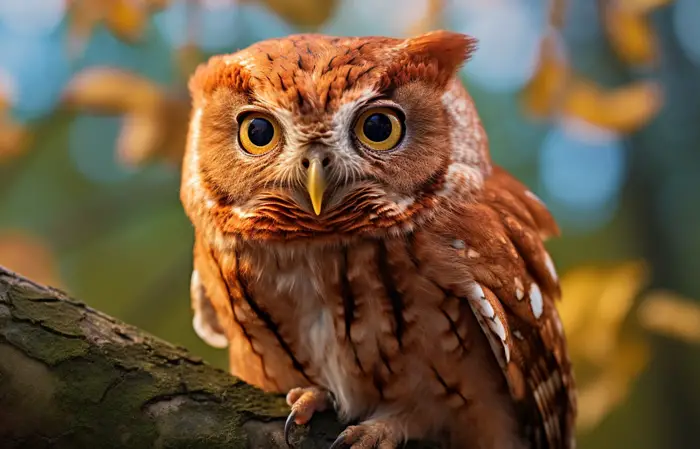
Frequently Asked Questions
Here are some FAQs you need to know the answers to:
Screech owls do occasionally scavenge dead animals, although this is not a major part of their diet. They have opportunistic feeding habits and will take advantage of carrion if they come across it.
Screech owls have a fast metabolism and cannot go for long without food. So, if found available, they will not turn down an easy meal from a carcass.
Screech owls belong to a nocturnal nature. Therefore, they forage and hunt at night time and spend the daylight, indeed, slumbering.
Specifically, these owls stay fully active starting from sundown up until sunrise. Males generally start foraging earlier each evening compared to their female counterparts.
Yes, screech owls may sometimes steal prey from other animals. This is a form of kleptoparasitism, which means parasitism by theft.
Screech owls may kleptoparasitize other raptors, such as hawks, falcons, or other owls, by snatching their prey in mid-air or from their talons. They may also take food from smaller birds or mammals that cannot defend themselves.
Conclusion
In essence, with their ability to swallow prey whole, screech owls can eat everything smaller than them. They take advantage of a wide variety of food sources, from insects to small vertebrates.
Their unique digestive system allows them to metabolize everything they eat. So, next time you hear them making noise in the woods, remember how mesmerizingly capable they are.
